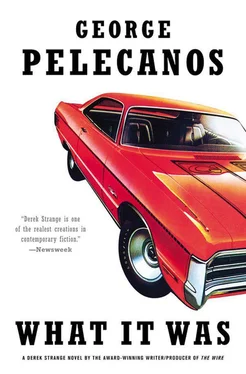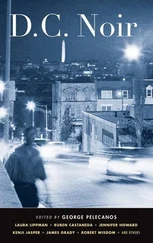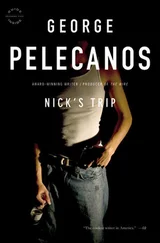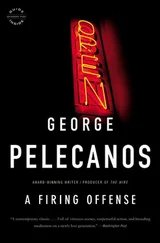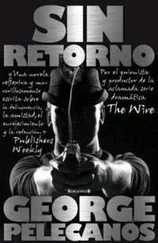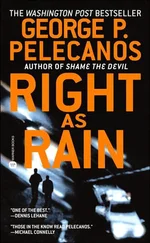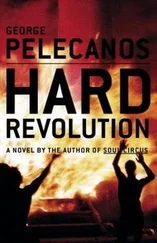George Pelecanos - What It Was
Здесь есть возможность читать онлайн «George Pelecanos - What It Was» весь текст электронной книги совершенно бесплатно (целиком полную версию без сокращений). В некоторых случаях можно слушать аудио, скачать через торрент в формате fb2 и присутствует краткое содержание. Жанр: Криминальный детектив, на английском языке. Описание произведения, (предисловие) а так же отзывы посетителей доступны на портале библиотеки ЛибКат.
- Название:What It Was
- Автор:
- Жанр:
- Год:неизвестен
- ISBN:нет данных
- Рейтинг книги:5 / 5. Голосов: 1
-
Избранное:Добавить в избранное
- Отзывы:
-
Ваша оценка:
- 100
- 1
- 2
- 3
- 4
- 5
What It Was: краткое содержание, описание и аннотация
Предлагаем к чтению аннотацию, описание, краткое содержание или предисловие (зависит от того, что написал сам автор книги «What It Was»). Если вы не нашли необходимую информацию о книге — напишите в комментариях, мы постараемся отыскать её.
What It Was — читать онлайн бесплатно полную книгу (весь текст) целиком
Ниже представлен текст книги, разбитый по страницам. Система сохранения места последней прочитанной страницы, позволяет с удобством читать онлайн бесплатно книгу «What It Was», без необходимости каждый раз заново искать на чём Вы остановились. Поставьте закладку, и сможете в любой момент перейти на страницу, на которой закончили чтение.
Интервал:
Закладка:
It spoke to a general point of attitude. In his time, criminals were not amateurs. The burglars, car thieves, dope cutters, pickpockets, and flimflam artists he knew were all driven by the skills of their profession and pride in their work. There were few kids in the game. No one realized how soon all this would change.
This last batch of dope he’d copped had not yet been paid for. Williams was short on money at the time of purchase, as he’d recently put a deposit down on a sweet ’69 Mark IV that he didn’t need but wanted. His contact up top, man named Jimmy Compton, had let him slide because he was a longtime customer in good standing. Williams had brought the product home, cut it down, and packaged it in bundles of twenty-five glassine dime bags. Runners, paid with a shot, would deliver the dimes to residences and places of business. Clients were listed in a book he kept well hidden. Williams had the bundles in paper bags in two locations: the suit carrier in his closet and in a wall cutout behind a hutch in his living room. His intent was to sell the shit, give his New York connect his payment, and add a little bonus to it, to acknowledge the man’s trust.
Williams put on some nice threads, as he always did this time of night, and prepared to leave his place for a little something at Soul House, his favorite bar, on 14th. It was a cave, really, just a simple dark room with low music coming from the juke. A spot where he felt comfortable. There he played the role of up-and-coming businessman, sitting at the stick, having himself a quiet drink. Mid-shelf scotch in hand, sometimes with a young lady seated beside him. Thinking, I’ve made it.
They parked on the 1300 block of T, drank off a couple more High Lifes, smoked cigarettes, and waited for near dark to come. They were watching a white brick row house with blue shutters, had a little old-time porch on the front. Jefferson had been watching the house for several nights.
“There he goes now,” said Jones.
“Told you,” said Jefferson. “He leaves out the same time, early in the evening. Goes to that bar, Soul House, on Fourteenth. You can set your watch to it. How they do in London, England, with that big clock they got.”
“Roland Williams,” said Jones.
“That’s Ro-Ro, went to Cardozo?”
Jones shook his head. “ Long Nose Roland, outta Roosevelt.”
“I can see it,” said Jefferson.
Roland Williams, with the nose of an aardvark, late twenties, wearin Cntiightg big-bell jeans and a print shirt. He locked the door of the house behind him and walked down the sidewalk.
“Let’s go,” said Jones.
They got out of the Buick and crossed the street. They came up quick behind Williams, who had turned his head and quickened his step but too late. Jefferson produced an old police-issue.38 with cracked wood grips held fast by electrical tape, and put the barrel of it to the small of Williams’s back.
“Keep walkin, slick,” said Jefferson. “Straight to the alley.”
Williams complied. He moved surely and did not appear to be too shook. They turned into an alley that ran behind Williams’s block, uneven stones in concrete, hard beneath their feet.
“Stop and turn around,” said Jones. “My man’s got his thing on you, so don’t be funny.”
Williams turned to face them. Somewhere near, a big-breed dog, housed behind a chain-link fence, barked lazily. There was no light back here, save the faint bleed of a streetlamp situated at the end of the alley. It was hard to read Williams’s face, but his voice was steady.
“Y’all want my money,” said Williams, “go on and take it.”
“Give it here,” said Jones.
Williams removed folding money from his front pocket and held it out. Jones took it and without examination stuffed it in the patch pocket of his bells.
“Now the key to your crib,” said Jones.
“For what?” said Williams.
“ ’Bout to help myself to your heroin. I know you’re holdin.”
“Who…”
“Never mind who . He kissin dirt.” Jones nodded with his chin. “Give it up. I don’t want no loose dimes, neither. The bundles.”
“You don’t understand what you gettin into, brother. I got that shit on consignment.”
“Say what?”
“I don’t own it.”
“You got that right. It’s mine now.”
Williams sighed. They heard his breath expel and saw his shoulders sag.
Jefferson grew impatient and touched his pistol to the man’s cheekbone. “Tell him where the dope at.”
“What I got is in my bedroom closet,” said Williams. “In a suit bag.”
“That’s it?” said Jones.
“All of it,” said Williams. “Swear for God.” Williams was a poker player, and they could not read the lie in his eyes.
“Gimme your key.”
Jones left the alley with the key to Williams’s house and the key to the Buick. Jefferson kept the gun loosely trained on Williams, who calmly lit a cigarette. Neither of them spoke.
Fifteen minutes later, Jones returned. Williams ground the butt under his foot.
“You get it?” said Jefferson.
“Yeah, we’re good.”
Williams studied them. The tall, light-skinned dude had a distinctive look and a rep to go with it. Had to be Red Jones, who some called Red Fury on account of his woman’s car. He knew nothing about the little one with the gold teeth.
“Can I get my house key back?” said Williams.
Jones tossed it in his general direction. Williams did not catch the key, and it fell to the ground with a small pathetic clinking sound. Jones and Jefferson chuckled low.
Williams felt unwise anger rise up inside him. “Y’all motherfuckers ain’t gonna last.”
“We gonna last longer than you,” said Jones, and he drew his.45 from the dip of his bells.
Williams took a staggering step back. Jones moved forward, pressed the gun’s muzzle high on Williams’s chest, and squeezed its trigger. The night lit up, and in the flash they saw the look of shock on Williams’s face as he left his feet and dropped to the alley floor. Blood pooled out from Williams’s back. His chest heaved up as he fought for breath. Then his eyes closed and he moved no more.
“Next time,” said Jefferson, “gimme some kind of warning. My ears are ringin, Red.”
“Boy talked too much shit.”
They left him for dead. It was a mistake.
FIVE
Strange had traded in his Impala and bought a low-mileage, triple-black, ’70 Monte Carlo from the Curtis Chevrolet at Georgia and Missouri. He’d be paying on it for three years, but he had no buyer’s remorse. He was a GM man who was working his way up to a Cadillac, but for now he was more than satisfied. The lines were extra clean, with rally rims, Goodyear radials, and a small-block 350 under the hood. The interior had sweet buckets, a horseshoe shifter on the console, factory eight-track sound, and a wood-grain dash. It was a pretty car.
Strange drove it downtown, Curtis’s Roots in the deck, “Get Down” playing loud.
He found a parking spot and commenced to knocking on doors in the apartment building at 13th and R, where Bobby Odum had lived. He began on the top floor and got very little in the way of leads. He was a young black man, casually but not loudly dressed, nice looking and well built, with a polite manner. Most important, he was not the law. Ft sizme somSo the residents of the building, for the most part, talked to him freely. But the information he received held little value in terms of his quest. He was looking for a ring, not Bobby Odum’s killer. Homicide was police business and always had been. Private detectives only solved murders in movies and dime novels.
On the bottom floor, he found a young woman named Janette Newman, a compact, nicely put-together gal who had the Marcus Garvey thing going on in her apartment. She let him in, offered him a seat on the sofa, and served him a soda. He learned that she was a schoolteacher at Harriet Tubman and that she was single.
Читать дальшеИнтервал:
Закладка:
Похожие книги на «What It Was»
Представляем Вашему вниманию похожие книги на «What It Was» списком для выбора. Мы отобрали схожую по названию и смыслу литературу в надежде предоставить читателям больше вариантов отыскать новые, интересные, ещё непрочитанные произведения.
Обсуждение, отзывы о книге «What It Was» и просто собственные мнения читателей. Оставьте ваши комментарии, напишите, что Вы думаете о произведении, его смысле или главных героях. Укажите что конкретно понравилось, а что нет, и почему Вы так считаете.
